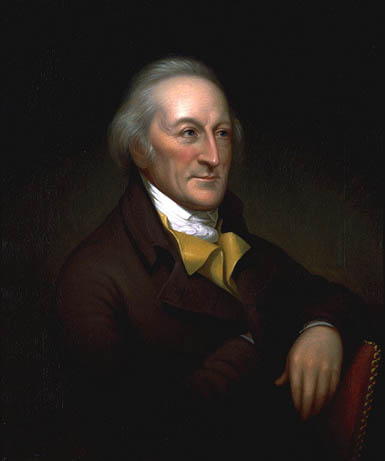
Founding Father George Clymer signed the Declaration of Independence as well as the U.S. Constitution. He was also a member of the first Congress, representing Pennsylvania.
Early Life
George Clymer was born on March 16, 1739. He became an orphan at the age of one and was raised by a wealthy uncle. Clymer received an informal education and apprenticed in his uncle’s mercantile business. He later became a partner in the firm and inherited the business upon his uncle’s death. Clymer married Elizabeth Meredith on March 22, 1765. They went on to have nine children.
Political Office
In part due to his business interests, Clymer was an early supporter of the Patriot cause, protesting Britain’s taxation of the colonies. In 1773, Clymer became a member of the Philadelphia Committee of Safety. He was elected to the Continental Congress in 1776, serving until 1780. From 1775-76, Clymer served as one of the first two Continental treasurers.
During the Revolutionary War, he served on a committee that conducted field inspections. When British forces threatened to occupy the capital of Philadelphia, Clymer stayed behind with George Walton and Robert Morris, while other members of the Continental Congress fled to Baltimore. From 1784-88, Clymer served in the Pennsylvania legislature.
Constitutional Convention
In 1787, Clymer was nominated by his home state to attend the Constitutional Convention. He was not a frequent speaker, but attended the majority of the sessions. He supported a strong central government and served on committees dealing with the military, commercial, and financial powers of the new government.
In 1787, Pennsylvania named Mifflin as one of its delegates to the Constitutional Convention. Mifflin’s greatest contributions came after the Constitution was signed. He played a significant role in Pennsylvania’s ratification effort.
Later Life
Clymer represented Pennsylvania in House of Representatives in the First Congress. He served from 1789 to 1791. Clymer’s desire to protect the interests of the common citizen resulted in him joining Federalists like James Madison in converging around Thomas Jefferson and his new political party.
After leaving Congress, Clymer served as Pennsylvania’s collector of excise taxes on alcoholic beverages and later as a member of the commission that negotiated a treaty with the Cherokee and Creek Indians in Georgia. Clymer rejoined the private sector in 1796, serving as the first president of the Philadelphia Bank and a sponsor of the Pennsylvania Academy of Fine Arts. Clymer died on January 23, 1813.








